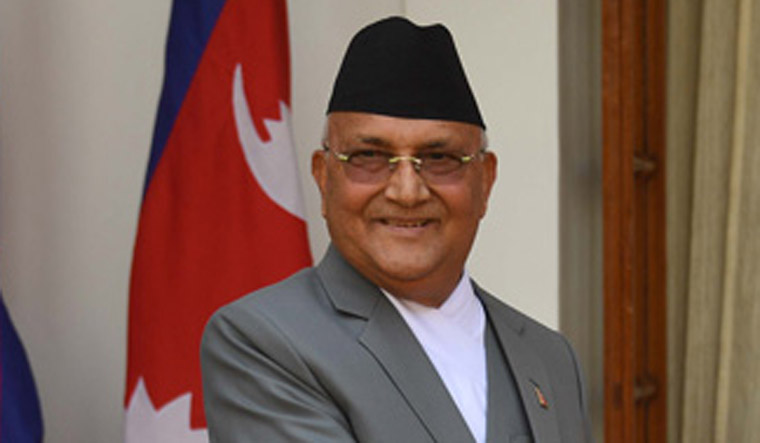Kathmandu: Nepal’s embattled Prime Minister K P Sharma Oli Thursday defended his government’s controversial decision to dissolve the House of Representatives and told the Supreme Court that it is not up to the judiciary to appoint a premier as it cannot undertake the legislative and the executive functions of the state.
President Bidya Devi Bhandari, at the recommendation of Prime Minister Oli, dissolved the lower house for the second time in five months on May 22 and announced snap elections on November 12 and November 19.
Prime Minister Oli is heading a minority government after losing a trust vote in the House.
This June 9, the apex court issued a show-cause notice to the Office of the Prime Minister and the President’s Office to furnish a written response within 15 days.
Furnishing a written reply to the Supreme Court on Thursday as demanded by the Constitutional Bench, Oli said the court cannot appoint a Prime Minister as it cannot undertake the legislative and the executive functions of the state.
The apex court received Oli’s response via the Office of the Attorney General.
“The Court’s duty is to interpret the Constitution and the existing laws, it cannot play the role of the legislative or the executive bodies,” 69-year-old Oli said in his response.
“Forming governments on the basis of parties is the fundamental characteristic of the parliamentary system and the Constitution does not imagine party-less practices,” he added.
Oli also defended the involvement of the President in this whole issue, saying Article 76 of the Constitution grants the sole right to appoint a Prime Minister to the President only.
“Appointment of a Prime Minister is absolutely a political and an executive process,” he underlined.
“As per Article 76 (5), there is no such provision of a person gaining or losing a vote of confidence in the House being examined by the legislative or the judiciary,” he said.
May 21, Nepali Congress President Sher Bahadur Deuba had submitted signatures of as many as 149 lawmakers before President Bhandari, requesting her to appoint him the new prime minister as per Article 75 (6). As many as 29 members of the Madhav Nepal faction of the CPN-UML had provided their signatures showing support to Deuba.
However, Oli too laid claim to the government, saying he had support of 153 lawmakers including 32 Lawmakers belonging to Janata Samajwadi Party.
But President Bhandari said both claims by Oli and Deuba were insufficient. Soon after the move, the Oli government recommended the dissolution of the House and midterm elections for November.
As many as 30 writ petitions, including by the Opposition alliance, have been filed in the Supreme Court against the dissolution of the House, which they said was “unconstitutional”.
The Supreme Court has started hearing on the case. Regular hearings on the case will resume from June 23.
Nepal plunged into a political crisis December 20 last year after President Bhandari dissolved the House and announced fresh elections on April 30 and May 10 at the recommendation of Prime Minister Oli, amidst a tussle for power within the ruling Nepal Communist Party (NCP).
In February, the apex court reinstated the dissolved House of Representatives, in a setback to embattled Prime Minister Oli who was preparing for snap polls.
Oli repeatedly defended his move to dissolve the lower house, saying some leaders of his party were attempting to form a “parallel government”.
PTI
